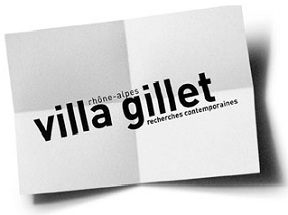For another Hysterature
Born in 1978, Émilie Notéris is a writer and visual artist. In her literary projects, she employs a language of multiplicity, interweaving stylistics fuelled by specific, technical vocabulary and shifting focus for each project, whether dealing with feminist theory, revolutionary utopia, political ecology, or the social criticism underlying dark urban fantasy films.
I mean would you call a woman a bitch would you say you’re my bitch and expect her to feel really cared for and respected?Well with me Julie... I has got a girlfriend and I do sometimes call her « me bitch » by you know in the bedroom whatever you know that is then words come out and you know she ain’t got problem with that.Hum hum hum hum ok euh G. I’m kind of speechless…I ain’t calling her « a bitch » I’m calling her « my bitch ».« my bitch » I’m sorry ok « my bitch » ok. »Interview of Naomi Wolf by Sacha Baron Cohen for the « Da Ali G Show », 2003.“Jérôme Dupuis, in L’Express, calls her ‘the self-proclaimed hysteric of French letters’ […]. Christine Angot is a woman, and this is for sure her greatest flaw.”
Eric Loret, “Un zeste de polémique”, Libération, September 3, 2012.
Since the question of women’s freedom in writing, or “Why stories of transgression or women’s assertions of freedom are less tolerated than those of men?” only highlight ordinary male chauvinism (the answer to the question is undeniably related to cultural issues), I prefer to focus on the counter strategies that can be deployed in response to the insults made to women, like the one Eileen Myles describes in her introduction to I love Dick by Chris Kraus, What about Chris?: “She’s turned female abjection inside out and aimed it at a man.” In other words, rather than identifying the reasons for the violent reception of women’s transgressive writing, I prefer to think about the strategies that can flow from them. In a way, when it comes to the notion of transgression, I prefer to recall its geologico-psychoanalytic meaning: marine transgression, or the flooding of continents by the sea. In this case: the covering of the dark continent of psychoanalysis (the sexuality of women) by the expansion of oceanic currents, the flux of hysterical writing.
Since I invoke psychoanalysis, it seems essential to avoid confusion between the issue of the reception of the work produced by women, which is a matter of culture, and the possibility of a specifically female writing or écriture féminine. Such is the pitfall of the differentialist feminism of Julia Kristeva, Hélène Cixous, Antoinette Fouque, and Luce Irigaray (affiliated to the so-called French feminism) who claim that there is an intrinsic difference between masculine and feminine writing, and lean heavily on psychoanalysis. In France, Hélène Cixous talks indeed of hysterature and écriture féminine, and in the United States, Elaine Showalter – author of Hystories: Hysterical Epidemics and Modern Media (1997) – has developed the concept of gynocriticism, a type of literary criticism shaped by an exclusively female perspective. I suggest that we make use of this concept of hysterature, but in order to divert it, and to transform it; if the reference to hysteria is interesting, it is precisely because it points to an attitude that is both subversive and strategic, rather than naturalist and differentialist.
The two quotations I have chosen as an introduction to this paper, despite coming from very different contexts and referring respectively to the private and public sphere, mirror nevertheless the image conveyed by the woman who engages herself on theoretical ground and the female author who disturbs, who disrupts: the author-bitch or the hysterical author – although the adjective ‘hysterical’ is not derogatory, strictly speaking, since it comes from psychiatry. Two terms that can be understood either as simple assertions, or as insults, depending on the context, as Judith Butler would say. A two-way interpretation depending on whether we use them in a reactionary or in a progressive way. These same terms are therefore prone to mutate into strategic operations.
Here is an example: In 2003, the stand-up comedian Sacha Baron Cohen, alias the parodic rapper Ali G, interviewed the feminist writer Naomi Wolf for “Da Ali G Show”. Naomi Wolf expressed her disgust when he admitted calling his partner “my bitch” in private, and subsequently consulted with her lawyer about possible legal action. Five years later, in 2008, in a discussion with Judith Butler for the magazine Têtu, Beatriz Preciado provided another response to Naomi Wolf’s question to Ali G.: “When I say “bitch”, I am certainly not talking about all the women, but the few women I fuck. And they are the ones who taught me to call them like this. You can well imagine that when I call Virginie Despentes my “bitch”, it is because she is perfectly ok with it… When a woman talks about sexuality in a crude way, she is perceived as masculine. This is not a rhetorical figure for me, but a way to inhabit the public space, and since it is totally forbidden to write like this as a woman, when you re-appropriate these codes in your language, you generate violence, and I do claim this language!”
It is therefore more a matter of re-appropriation than a direct response. Preciado says: “It is totally forbidden to write like that as a woman.” So what would hysterical writing be? In 1888, Alfred Binet became interested in “hysterical writing” and in the experiments conducted by Jean-Martin Charcot on hysterical female patients susceptible to hypnosis, to whom he dictated while submitting them to sensory and psychological stimulation: “We definitely noticed that under the influence of sensory stimulation, such as the perception of a red disk, the hallucination of pink or red, a real or imaginary noise, a strong musky smell, or even a putrid smell, etc., writing becomes larger and lines thicker, as if the subject felt the need to expend a surplus of muscular energy. In addition, the subject writes faster.” But it was a question of graphology, and not of literary writing. Charcot and hysteria fascinated both Breuer and Freud, who described hysteria in 1917, in Mourning and Melancholia, as a “disturbance of narration, of the ability to recount one’s story, entailing a failure of translation from image and fantasy to discourse. The symptom, then, is conceived as marking the site of an obstructed translation into words.”
One of the customary treatments of hysteria in Charcot’s times involved a series of genital massages of the patients by the doctor or by nurses, whose purpose was to trigger an orgasm. The mechanization of such practices lead to the invention of the vibrator, which allowed a much greater number of patients to be treated in the course of one day. And this is exactly the method that Kathy Acker is advocating for herself: “I'm looking for what might be called a body language. One thing I do is stick a vibrator up my cunt and start writing — writing from the point of orgasm and losing control of the language and seeing what that's like.”
As for Judith Butler, she became interested in hysteria while looking for a principle of resistance to the norms of psychoanalysis. Butler’s queer theory borrows from the theory of Michel Foucault who talks about hysterization as a strategy for the production of sexuality, in the first volume of The History of Sexuality (“The Will to Knowledge”) and, in Psychiatric Power, his lectures at the Collège de France (1973-1974), he describes hysterical men and women as “militants of anti-psychiatry” who resist the system of sexuality.
In Gender Trouble: Feminism and the Subversion of Identity, Butler writes in 1999: “Hysteria is the woman’s simultaneous acceptance and refusal of the organization of sexuality under patriarchal capitalism. It is simultaneously what a woman can do both to be feminine and to refuse femininity, within patriarchal discourse. And I think that it is exactly what the novel is; I do not believe there is such a thing as female writing, a “woman’s voice”. There is the hysteric’s voice which is the woman’s masculine language (one has to speak “masculinely” in a phallocentric world) talking about feminine experience. It is both simultaneously the women novelist’s refusal of the woman’s world — she is, after all, a novelist — and her construction from within a masculine world of that woman’s world.”
It seems to me even more useful today to think of hysterical writing as a form of resistance, a way to integrate the codes of masculinity and use them strategically, like Charcot’s patients who voluntarily allowed acts to be performed upon them in order to avoid psychiatric internment. We could also note how homosexuals re-appropriate the insulting terms that heterosexuals use towards them, and especially the way they reuse the insulting terms that men use towards women.
Cette ressource a été publiée dans le cadre de la quatrième saison du festival "Walls and Bridges", organisé par la Villa Gillet, qui s'est tenu à New York du 11 au 20 octobre 2012.
Pour citer cette ressource :
Emilie Notéris, "For another Hysterature", La Clé des Langues [en ligne], Lyon, ENS de LYON/DGESCO (ISSN 2107-7029), décembre 2012. Consulté le 25/04/2024. URL: https://cle.ens-lyon.fr/anglais/litterature/les-dossiers-transversaux/theories-litteraires/for-another-hysterature



 Activer le mode zen
Activer le mode zen![[title-image]1332154741753[/title-image] Emilie Notéris - All rights reserved](https://cle.ens-lyon.fr/anglais/images/noteris_1355779644539-jpg)



